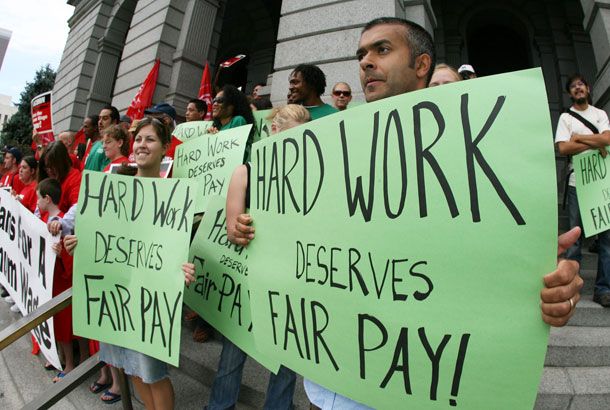Investor activism and the planned introduction of a pay ratio has had little effect on curbing the excessive pay of FTSE 100 executives, a report has found.
Just over a third of FTSE 100 companies are paying their UK staff a “living wage” as outlined by the Living Wage Foundation, while CEOs trousered 11% pay rises between 2016 and 2017, a report from the Chartered Institute of Personnel and Development found.
The report discovered that the median FTSE 100 CEO pay cheque stood at £3.93 million a year, while nearly two thirds of the UK’s leading 100 companies failed to pay some of their staff a living wage.
Peter Cheese, chief executive of the CIPD, said that investor activism has yet to make a difference to the amount that top UK CEOs take home.
“It’s disappointing to see that CEO pay has held up in the face of increasing pressure when average pay across the workforce has barely shifted in recent years,” he said in a statement.
“Pressure is building in the system. Given the ongoing issues of trust in big businesses and a push for greater transparency, it really is time businesses and boards put greater scrutiny on high pay, and that they think much more objectively about what they are rewarding CEOs and how.”
Asset managers have become increasingly critical of FTSE 100 remuneration packages in recent years.
In April, Royal London Asset Management voted against the executive pay proposals at housebuilder Persimmon. Then, in June, RLAM joined with Hermes EOS, Pirc and Glass Lewis in announcing their intention to vote down a remuneration report at advertising giant WPP.
Meanwhile, Schroders’ most recent sustainable investment report, outlined the fund firm’s no-nonsense stance on remuneration, saying it would vote down management proposals in several circumstances.
“We will vote against management if we believe a proposal diminishes shareholder rights or if remuneration incentives are not aligned with the company’s long-term performance and creation of shareholder value,” the company stated.
“In recent years we have been increasingly voting against individual directors. For example where we have had ongoing concerns about remuneration we may vote against the chair or other members of the remuneration committee.”
In the latest CIPD report, the chief executive said that financial performance alone is not the only measure of success, adding that this must be balanced with long-term sustainability and value.
He added: “Investors and boards need to look beyond share price, and consider a much broader range of indicators that show how that individual is performing for the long-term good of the business, its workforce and other stakeholders.”
The full CIPD report is available here.








